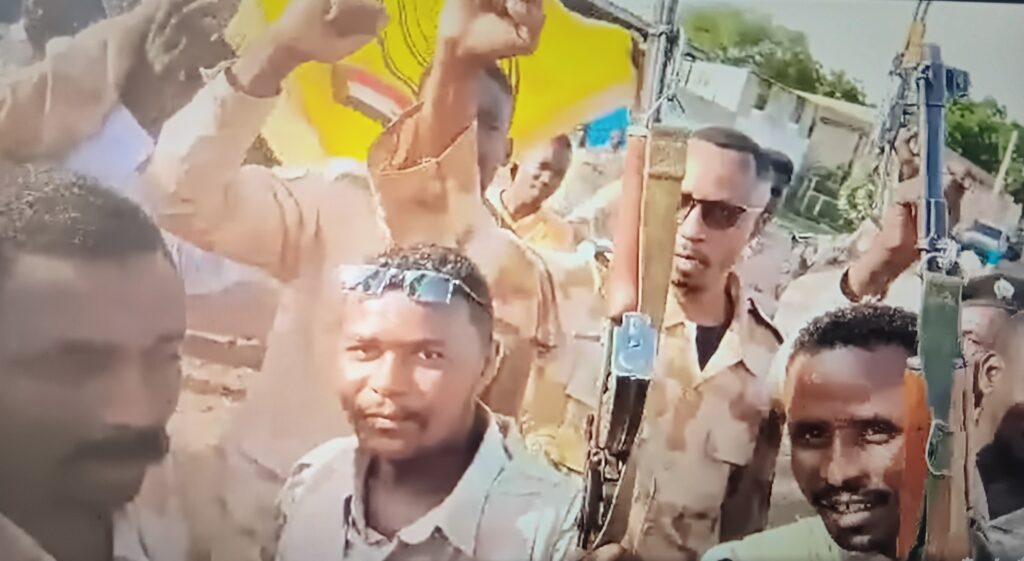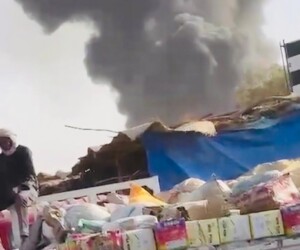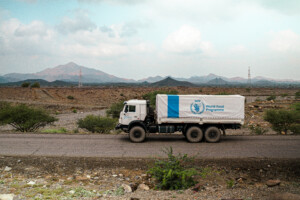Sudan violence continues in Khartoum, Sennar, North Darfur

RSF in Wad Kebeish, north of El Giteina town, White Nile state (File photo: RSF)
The Sudanese Armed Forces (SAF) is continuing its offensive against the Rapid Support Forces (RSF) in Khartoum. Airstrikes on Abu Hajar in Sennar killed several people. RSF paramilitaries attacked villages in southern River Nile state. Fighting in the North Darfur capital of El Fasher persists without mercy, while clashes between the RSF and rebel combatants in Dar El Salam displaced about 370 families.
The SAF and allied paramilitary groups are continuing their offensive against the RSF in Khartoum state launched on September 26. Sources loyal to the Sudanese army reported that it was able to retake the police station and the mosque of El Lamab along the White Nile in southwest Khartoum on Sunday evening.
The SAF maintained its positions seized from the RSF in El Mogran in northwest Khartoum (where the two Niles meet) including the El Shaheed Mosque, the Zain communications building, and the Water and Electricity Corporation offices, while fighting continued in other areas in the capital.
Brig Mohamed Awad, representative of the Omdurman Military Region, said in a briefing on Sunday that the army, which has not yet reached all the targets in El Mogran, aims to advance east towards the General Command.
The RSF were not available for comment.
Abu Hajar
In Sennar, of which most parts were occupied by the RSF in July, airstrikes on Abu Hajar town, east of Singa, led to dozens of deaths and injuries on Sunday.
A listener told Radio Dabanga from Abu Hajar that the bombardments that began around 2:00 randomly targeted the town and neighbouring villages. “One of the missiles hit a condolence tent, killing and wounded many mourners.”
The Abu Hajar Resistance Committees confirmed “the massacre” on their Facebook account.
Hajar El Asal
In River Nile state, RSF forces attacked villages south of Hajar El Asal, about 98 kilometres north of Khartoum.
Residents of Hajar El Asal reported an increase in attacks after the SAF withdrew its troops from the area. They said that two villagers were killed and several others were wounded in the past two days. Others were detained by the paramilitaries, who also plundered shows and homes in the area.
Most of the villagers have fled amid fears that the violence will spread to the town itself.
The attackers most probably belong to RSF units who were forced to flee Halfaya in Khartoum North (Khartoum Bahri) in end September, following the invasion of SAF soldiers and allied militias from Omdurman into Khartoum North and Khartoum.
Radio Dabanga reported on Sunday that RSF paramilitaries are assaulting the inhabitants of Tuti Island in Khartoum state after they had to flee from their position in El Mogran.
El Fasher
The Sudanese air Force on Sunday and yesterday continued its airstrikes on RSF sites in the neighbourhoods of the North Darfur capital.
While the air raids targeted eastern and southern El Fasher, the RSF resumed its artillery shelling of the northern and western parts of the city.
The federal Ministry of Health accused the RSF of bombing the Saudi Hospital in El Fasher on Sunday, which led to the death of a staff member and extensive damage to the hospital.
Babiker Hamedein, the Minister of Health and Social Care of the Darfur Regional Government, said that the attacks on the Saudi hospital resulted in the injury of 15 patients and staff.
A resident told Radio Dabanga that the city did not witness any direct clashes between the warring parties. “RSF shelling randomly targeted El Sahafa and Abu Shouk El Hilla in the north and the livestock market in the south, causing an uncounted number of deaths and injuries.”
The RSF are still preventing food trucks from reaching the city, he said
The source further lamented that Military Intelligence officers “began to confiscate Starlink devices and accessories from the markets without stating a reason”. For months now, El Fasher is suffering from a communications network outage, and the remaining inhabitants rely on Starlink for communication.
Dar El Salam
The Displacement Tracking Matrix (DTM) of the International Organization for Migration reported the displacement of an estimated 371 families from Dar El Salam town in North Darfur on Sunday.
“The displacement reportedly occurred following clashes between the Juba Peace Agreement Joint Forces (JPA Forces*) and Rapid Support Forces (RSF). Households were primarily displaced to other locations within Dar As Salam locality.
“There were reports of deaths and injuries among civilians, as well as looting of personal and commercial property, including livestock. The situation remains tense and unpredictable, the DTM said in its updated DTM Early Warning Flash Alert yesterday.
Shangil Tobaya
The Darfur Displaced and Refugee Camps Coordination yesterday reported that displaced people in the Shangil Tobaya camp in southern North Darfur were attacked on Sunday morning by “gunmen wearing the official uniforms of the RSF and driving their cars, who took all the property surrounding the camp”.
The Darfur Camps Coordination said in a statement that “the camp’s youth confronted the attackers, after which violent fighting broke out whereby heavy weapons like RPGs and machine guns were used”.
The youth were able to recover the stolen livestock and money. No casualties were recorded among the camp residents.
Other attacks took place on the road linking El Mallam with Shangil Tobaya, where commercial vehicles were targeted. Several people were injured and had to be transferred to the hospital of Shangil Tobaya.
The statement described the situation in the region as “dangerous” and called on “everyone to be vigilant and cautious in these difficult circumstances”.
* The Darfur Joint Force was formed in June 2022, as agreed on in the 2020 Juba Peace Agreement (JPA), to protect the people in the region. The force was made up of fighters of the Sudan Liberation Movement faction headed by Darfur Governor Minni Minawi (SLM-MM), the JEM faction led by Finance Minister Gibril Ibrahim (JEM-GI), and several small rebel groups that signed the JPA. These movements renounced their neutrality in November last year and are now fighting the RSF alongside the Sudanese army. Since then, Sudanese media speak about the Joint Force of Armed Struggle Movements, while the group’s logo on their X and Facebook accounts says Sudanese Joint Force (and in Arabic Sudanese Joint Forces).











 and then
and then